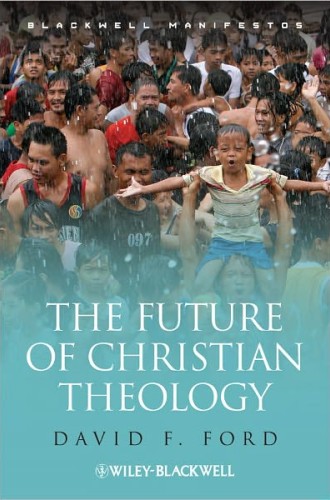The Future of Christian Theology, by David F. Ford
A manifesto hardly seems like the right genre for David F. Ford. The Irish Anglican theologian has made a career partly with the splendid encyclopedia The Modern Theologians, a book regularly blessed by graduate students facing their exams. Other British theologians of the last couple of generations, such as Ford's onetime classmates and friends Rowan Williams and Sarah Coakley, and the younger Radical Orthodox thinkers, would have seemed more likely candidates to write in the Blackwell Manifestos series. Though Ford's work is voluminous, he does not shout from the rooftops. He far more often synthesizes, observes and inveighs with a magisterial tone. His most important work may be what he does behind the scenes: helping build the Cambridge divinity faculty, launching the Scriptural Reasoning project and churning out graduate students who are actually employable.
Yet here Ford does offer a manifesto, and it's a happy thing that he does. It's really, really good. It thunders that we should . . . well, actually, it doesn't thunder. It ponders how theology can be wise and creative in the 21st century. If it were to thump its chest a bit more, as the genre seems to suggest it should, it would claim that everyone should do theology as Ford's colleagues in Scriptural Reasoning do. But he's leery of assigning such a stance to all theologians, and I agree with him. So the genre feels not quite right for Ford, and the book limps in places where it should gallop.
Ford opens with a brief survey of 20th-century theology, which he presents in the same tone as his encyclopedia. The consciousness of theology, he explains, has changed indelibly with the advent of feminist and ecumenical theology. He mentions a host of other trends, but these are the two through which all theologians must pass. He wants to add a third category: Scriptural Reasoning's sort of interreligious theology, in which Muslims, Christians and Jews remain faithful to their own community while joining in binding relationship to one another.





